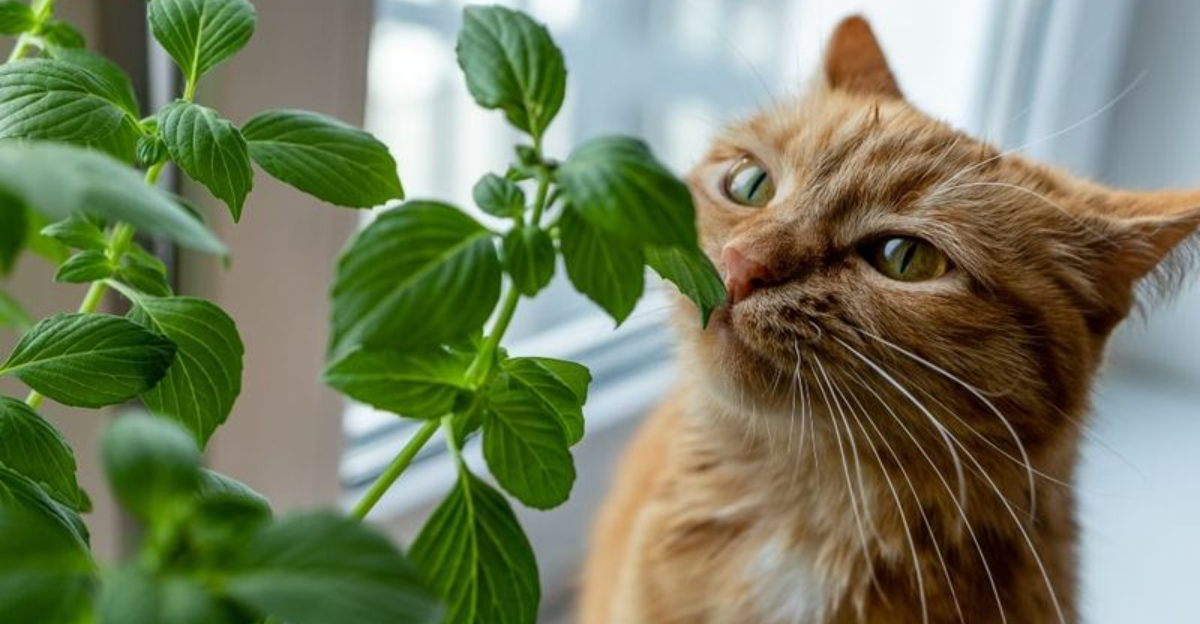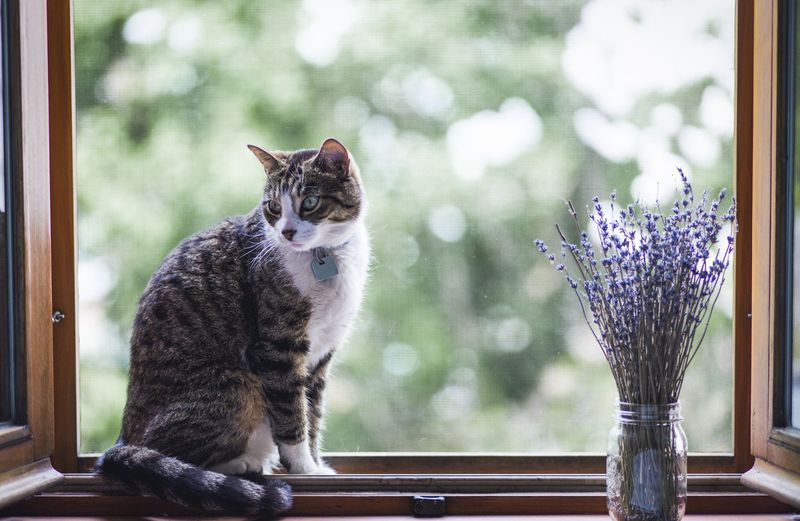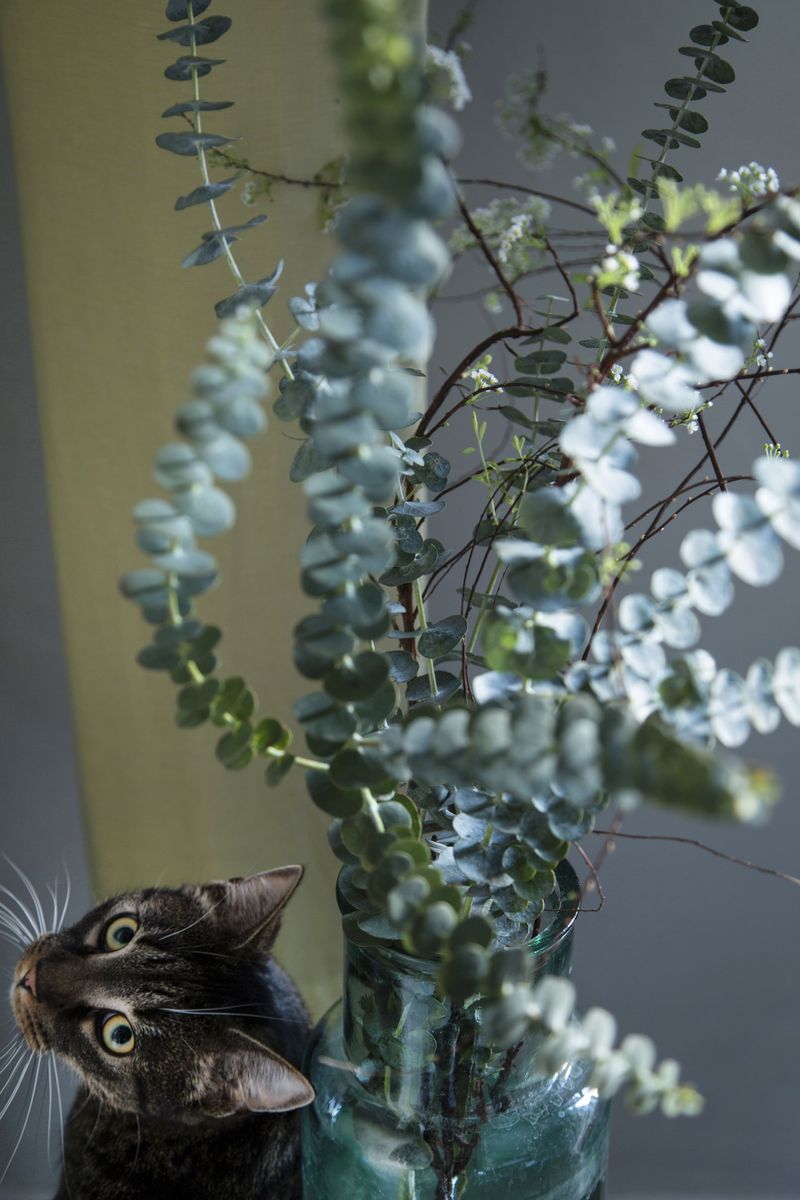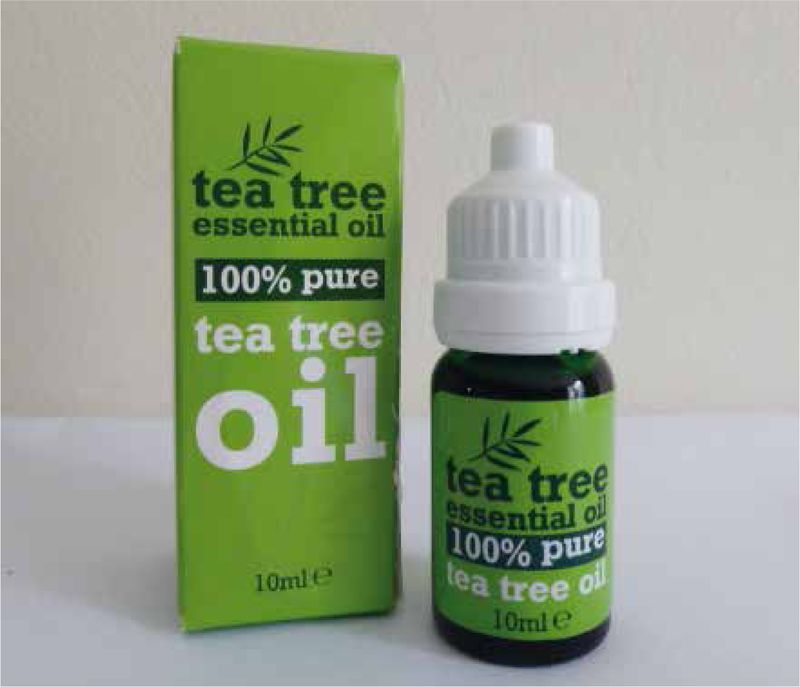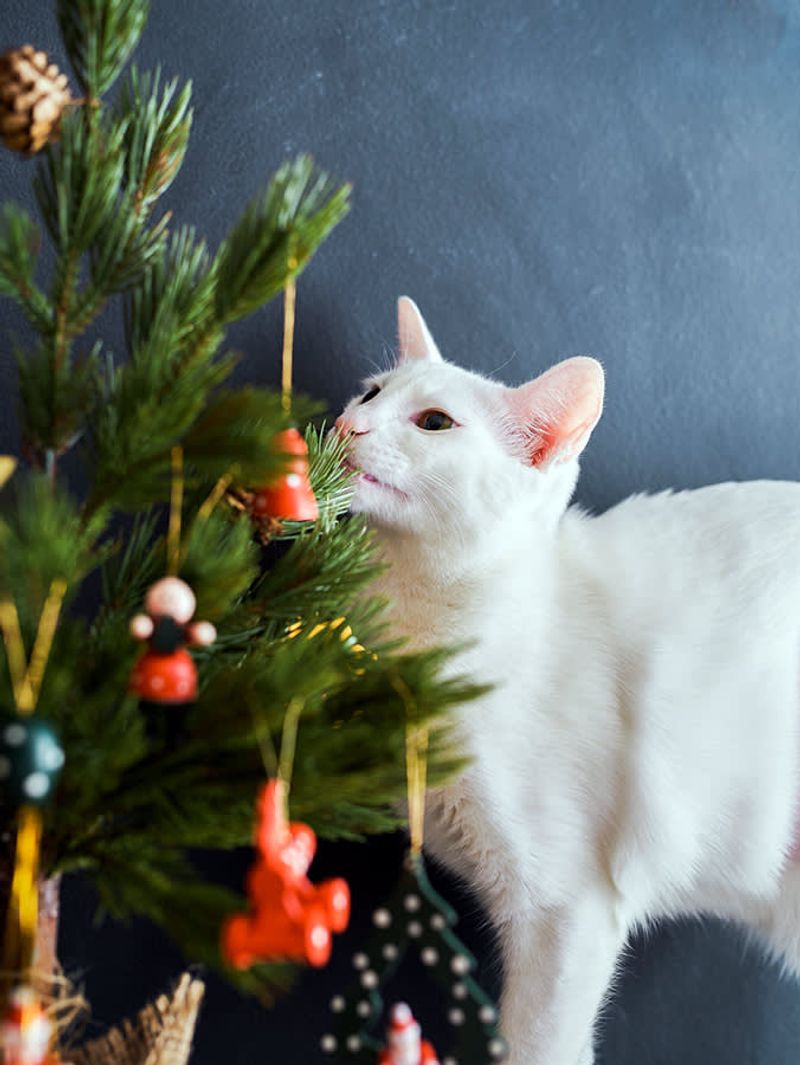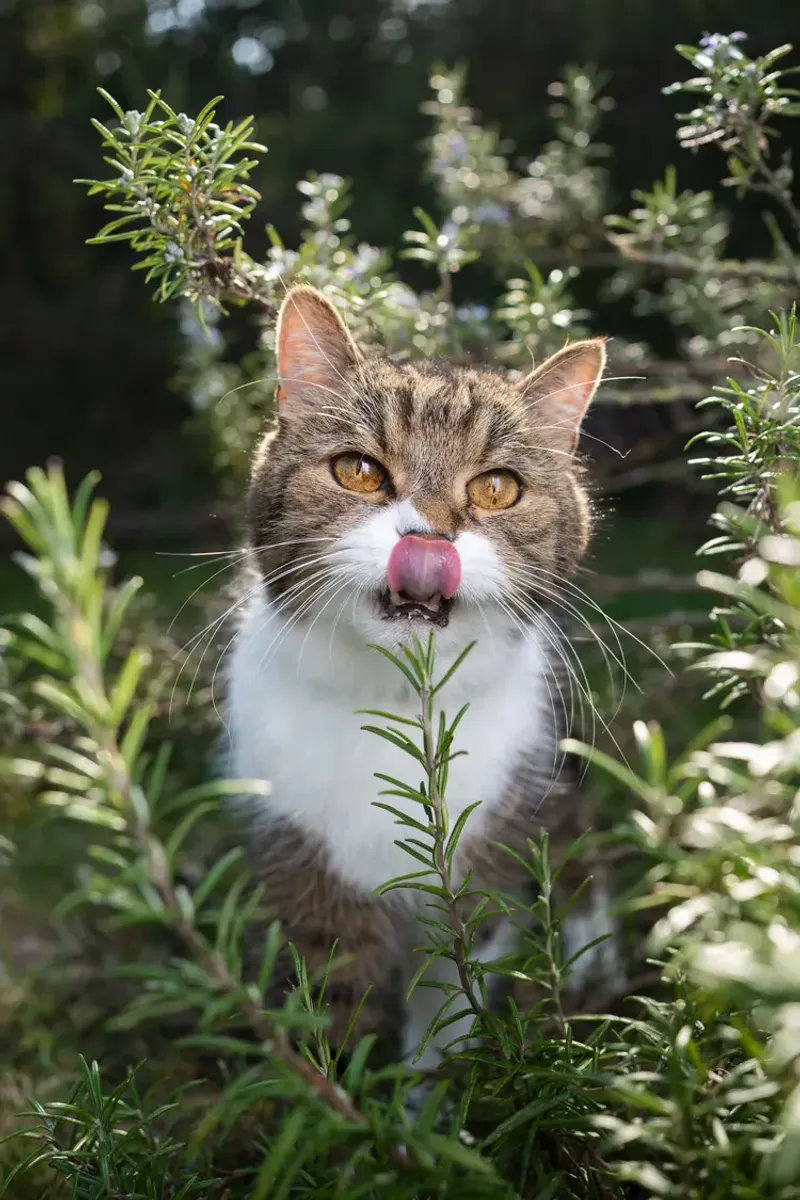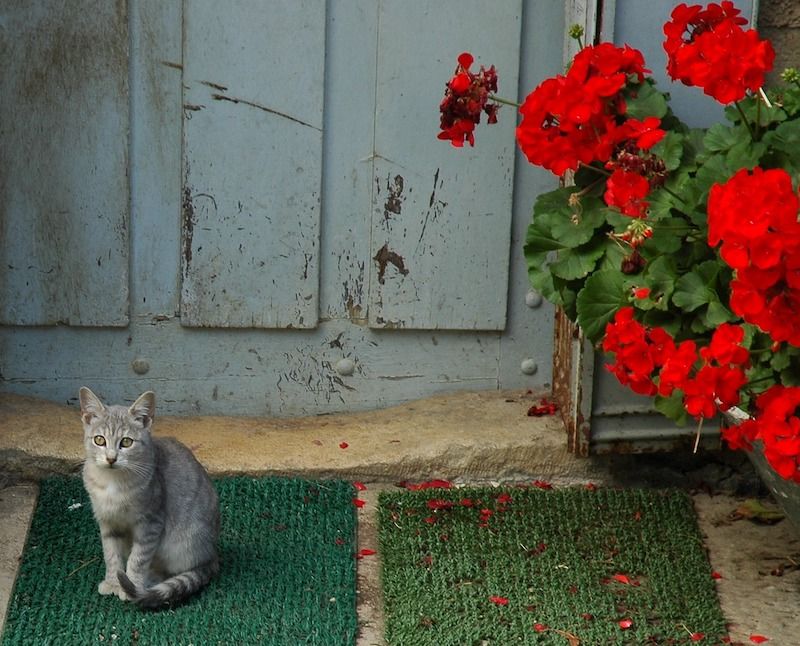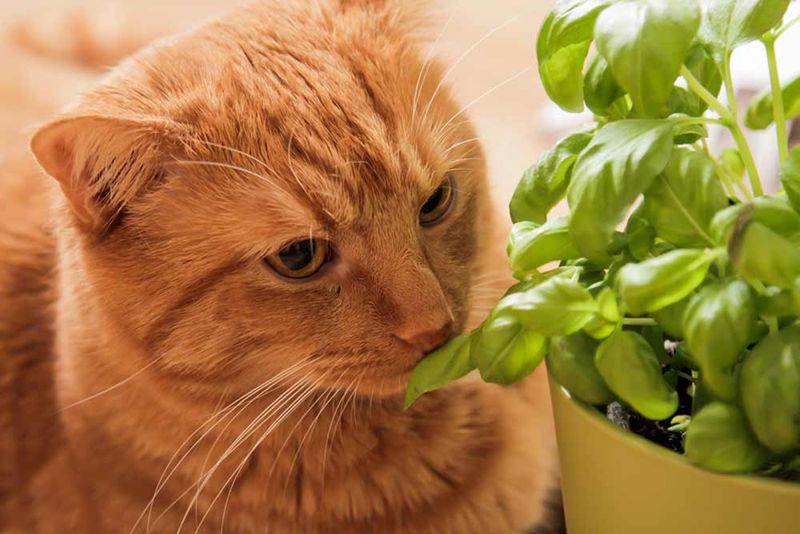📖 Table of Content:
Cats rely heavily on their sense of smell to navigate and understand their environment. With scent receptors far more sensitive than those of humans, even mild fragrances can feel overwhelming. What smells pleasant to people may be irritating—or even distressing—to a cat.
Many common household products contain scents that can impact a cat’s behavior. These reactions can range from mild discomfort to noticeable changes in mood or routine. Recognizing these triggers can help maintain a peaceful and healthy atmosphere.
Not all fragrances are harmful, but some are best avoided when living with cats. Paying attention to their reactions can offer clues about what’s bothering them. Identifying and removing problematic scents can make a big difference in their overall well-being.
1. Lavender
Lavender might smell calming to humans, but your cat likely disagrees. The essential oils found in lavender can be overwhelming to their sensitive noses. While lavender has a reputation for soothing people, it can have the opposite effect on cats.
Some cats may even become agitated or anxious when exposed to lavender scents. If your feline friend seems uneasy or restless, check for lavender diffusers or products nearby. Consider swapping them with cat-friendly alternatives.
Remember, every cat is unique, so while one might tolerate lavender, another may find it unbearable. Keep an eye on their reactions.
2. Citrus
What smells fresh to humans can be overwhelming for cats—especially citrus. Scents like lemon and orange are often too intense for their sensitive noses. The culprits are compounds like limonene and linalool found in citrus oils.
Some cat owners use citrus peels as a natural deterrent to keep cats away from certain areas. However, prolonged exposure can cause discomfort or stress.
For a harmonious home, try to minimize strong citrus scents where your cat frequents. A happy cat means a happier home, after all!
3. Peppermint
With its crisp, cool aroma, peppermint might be loved by people, but it’s a no-go for cats. The menthol in peppermint can be harsh on their sensitive noses. Some felines may even show signs of distress or irritation when peppermint is in the air.
If you’re a fan of peppermint-scented products, be mindful of your cat’s reaction. They might choose to avoid rooms where peppermint is prevalent.
Consider opting for less intense scents to keep your kitty comfortable. After all, a relaxed cat makes for a more peaceful household.
4. Eucalyptus
Humans may love the crisp scent of eucalyptus, but cats aren’t so fond of it. The strong camphor scent can overpower their delicate noses, leading to breathing difficulties and unnecessary stress.
Cats are known to be particularly sensitive to eucalyptus oil, which can cause symptoms ranging from sneezing to wheezing. If your cat acts differently around eucalyptus, consider removing the source immediately.
Instead, explore alternative fragrances that are safe and pleasant for both you and your feline friend. It’s all about balance and comfort in your shared space.
5. Tea Tree
Tea tree oil is touted for its antibacterial properties, but it can pose a problem for cats. Even small amounts of tea tree oil can be toxic if ingested, and its strong scent is enough to repel most cats.
Cats might avoid areas treated with tea tree oil, leading to a disrupted routine or increased stress. Always ensure that cleaning products or personal care items containing tea tree are stored securely away from curious paws.
Opt for more cat-friendly scents to maintain peace and ensure your pet’s well-being.
6. Cinnamon
The rich, spicy fragrance of cinnamon is comforting for people but can be unpleasant for cats. Its strong scent may be overpowering, causing irritation or distress for your feline companion.
Exposure to cinnamon, especially in essential oil form, can cause mild to severe allergic reactions in cats. Symptoms include coughing, sneezing, or a general sense of unease.
To keep your cat comfortable, consider reducing the use of cinnamon-scented products at home. A harmonious scent environment will help your furry friend feel more at ease.
7. Pine
The fresh scent of pine is synonymous with cleanliness for many, but it’s a different story for cats. Pine’s strong aroma can be overpowering and unpleasant for your feline friend.
Some cats react negatively to pine-scented products, as they may contain potentially toxic phenols. Always opt for natural alternatives or ensure ventilation when using pine scents.
Monitoring your cat’s behavior around pine can help you adjust and create a more relaxing environment for them.
8. Rosemary
Rosemary is often used for its aromatic and pungent qualities, but cats may not be fans. Its intense scent can be off-putting and cause some cats to act skittishly.
For those who use rosemary in cooking or as a garden plant, consider how your cat reacts to its presence. You may notice your cat steering clear of areas where rosemary is prevalent.
For a more harmonious household, consider reducing rosemary exposure or providing alternative areas for your cat to explore freely.
9. Geranium
Geraniums add a splash of color and fragrance to any garden, but their scent can be too much for cats. The strong floral aroma might repel your feline, keeping them at a distance.
If you notice your cat avoiding certain areas of your garden, consider that geraniums might be the culprit. Cats are known to be sensitive to the chemicals in geranium oils.
Creating a cat-friendly garden space without strong-smelling plants can ensure your pets enjoy their outdoor adventures.
10. Basil
Though basil’s herbal scent is beloved in many kitchens, it can be a bit too strong for cats. Even though it’s less intense than some other herbs, it may still cause your cat to wrinkle its nose.
If your cat seems to avoid the kitchen when you’re cooking with basil, it might be time to reconsider using it so freely. Try to provide a scent-neutral area for your cat to retreat.
Balancing your culinary adventures with your cat’s comfort ensures a happy coexistence.
